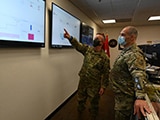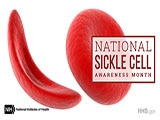It’s Time to Walk the Talk: Reflections on the Second Report of the WHO’s NCD Commission
Countries around the world face different and unique public health challenges that sometimes require regional or even international collaboration to solve. One such challenge that has prompted calls for international cooperation are non-communicable diseases, or NCDs for short.
Cardiovascular disease, cancer, diabetes, chronic respiratory diseases, and mental health disorders are all examples of NCDs, which represent the leading cause of death worldwide. The toll of NCDs, however, extends beyond health and affects workforce productivity and economic prosperity – crucial underpinnings of any society.
Recognizing the growing danger posed by NCDs, nations around the world committed to reduce premature mortality from NCDs by one-third, through prevention, treatment, and the promotion of mental health and wellbeing, as part of the Sustainable Development Goals (SDGs) hosted by the World Health Organization. In 2017, to accelerate progress in reaching this target, WHO Director-General Dr. Tedros Adhanom Ghebreyesus established the Independent High-level Commission on NCDs, of which I am a member.
Our goal has been to offer bold, new recommendations that have not been part of the international NCD discussion, and that is why I welcomed our 2018 report, Time to Deliver. The Commission has been very forward-leaning in promoting partnerships between governments, the private sector, and other stakeholders. The report offers actionable recommendations that can truly help accelerate global action against NCDs. The report states, and we agree, that governments should engage constructively with the private sector, and that public-private partnerships (PPPs) can be an important tool to contribute to effective NCD responses.
Last month, I had the honor of leading the U.S. delegation to the Sultanate of Oman, where we of the Commission presented our second and final report on NCDs. Building on the recommendations in the Time to Deliver report and the commitments made in the 2018 UN General Assembly Political Declaration on NCDs, the second report describes a series of possible solutions presented as recommendations to the WHO Director General that could help accelerate the global response to NCDs toward reaching SDG our targets with recommendations covering a variety of issue areas in NCDs. Since the field is so broad, rather than attempt to cover the entire NCD landscape, the Commissioners focused these additional recommendations into the strongest actionable steps we can take to accelerate progress to address NCDs.
Each of our international interactions has reinforced our understanding that countries writ large – and not just governments – need to take greater ownership of challenges to health, precisely through collaborations across sectors and leveraging the strengths of each. This is particularly true in terms of meeting the challenge of NCDs. Countries are most effective when they articulate their own unique national priorities and focus their attention on solutions that will work for themselves to meet those priorities those parameters, while keeping informed of best practices in other countries. Governments can help create frameworks for communication and engagement, but all sectors should recognize that their combined efforts can be mutually beneficial, and that capitalizing on the strengths of each unique sector can help an entire society work towards solutions.
In March of this year, with the World Economic Forum and the Government of Kenya, we organized a two-day workshop on how Member States, the UN system, civil society and the private sector can turn the corner and engage in a constructive way toward our common objective and commitment of achieving our particular NCD goal. Each of us in the room that day, representing governments, UN agencies, civil society or private sector organizations, agreed that to meet the challenge of our goals, it would be a lost opportunity to pursue only government-centric solutions.. Participants noted how nations have signed up repeatedly to the notion that NCDs are a growing problem requiring significant stakeholder inclusion, not exclusion, through a wide variety of WHO and UN resolutions and statements. There are many opportunities for cooperation that are missed due to lack of understanding between one another on goals, timetables, metrics and more. And so many times, countries and companies will hit upon a winning strategy and have some success, or conversely learn that a particular approach will not work, but these lessons are rarely synthesized and shared across borders, or even sometimes between subsequent Administrations within countries. With this in mind, we came up with some exciting ideas, including establishing a platform or observatory for standards and best practices to guide governments and their partners that wish to develop effective public-private partnerships for the prevention and control of NCDs. This is a first-of-its-kind-initiative in this international space in healthcare, and we are excited to help launch it.
We also were reminded again, that sometimes for good reason, sometimes not, there is both a trust and a communication gap in working in the NCD space toward public health outcomes. With all of this in mind, we are excited that recommendation six of the report calls for the establishment of an NCD partnerships platform within WHO, the organization with the global membership and trust that can bridge all these gaps and move from talk to action.
We are pleased to see the release of this second, and final, report from the Commission, entitled “It’s Time to Walk the Talk”. I am hopeful about its potential to effect real change on the ground in all our communities. Implementing the Commission’s recommendations is the next step if we hope to beat NCDs and the United States intends to be a part of it
To view a summary of the Commission’s NCD report, click here.
Achieving Better Health for Mothers and Babies
World AIDS Day 2019 Ending the HIV/AIDS Epidemic


